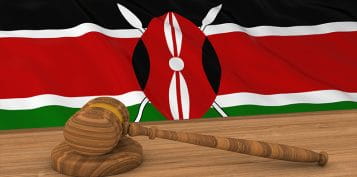Online Gambling Laws – Where Is It Legal to Gamble?
Different people have different ways to relax and indulge in fun and extracurricular activities in their spare time. Some hobbies are completely harmless and can be practiced or done from anywhere, literally. Think of something as basic as drawing or singling. There are no physical boundaries that can constrain you when you feel like its time to spread your wings of creativity and vocal talent.
Quite the number of people and we mean thousands, find consolation on the digital casino floor, where you can sit back, bet on your favourite games, and hope for the coveted jackpot to fall on your lap. However, it’s a tricky territory here because the freedom with which you can place bets online is directly related to the online gambling laws in the country or region you find yourself in. The rules of the game could vary even between the states in a single territory, so you need to know what’s legit and what is a strict “No-no”, should you want to avoid overstepping the thin line between legal and illegal.
Laws for Online Gambling – International Breakdown?
The laws on online gambling, similarly to the world itself, are vastly different from one country to another. It is a direct result of each nation’s religious beliefs, economic state, national development, accessibility to technology, and much more. It would be false to assume that the more advanced a country currently is, the more open-minded its approach to gambling is. On the contrary, a surprising number of 1st world countries have imposed strict rules against many of the most popular forms of online gambling within the limits of the country.
To be frank, we simply couldn’t divide the world’s nations into just two categories that would best represent the legality of the online gambling laws by country. There are additional factors that heavily influence the data and need to be taken into consideration. Otherwise, the information will be skewed. Let us look at and examine the status of the gambling online laws throughout the world in the following paragraphs.
Local Online Gambling Laws Don’t Influence Foreign Casinos
- Europe – Czech Republic, Iceland, Luxembourg, Slovakia, Serbia, Bosnia, Cyprus
- North America – Mexico, El Salvador
- South America – Brazil
- Asia – Azerbaijan, Japan, Malaysia, Singapore, Laos, Qatar, Yemen, Hong Kong, Brunei, Kyrgystan, Uzbekistan
- Africa – Eritrea, Nigeria
- Australia & Oceania – American Samoa, Australia, Guam, New Zealand
The 1st round of countries is such, where the local laws for online gambling cannot block offshore digital gaming venues that accept punters from these nations on their respective platforms. What this means is that the local regulators do not require from foreign sites to possess any form of licensing, or if they do, it can be from any licensing jurisdiction whatsoever. However, keep in mind that even if the countries take such liberty with online casinos based abroad, gambling at locally-established websites and brick-and-mortar venues could be prohibited.
Let’s take a look at New Zealand, for example. In the land of Kiwis, all forms of online gambling have been prohibited ever since The Gambling Act of 2003 was passed. However, it explicitly mentions that the rules apply to websites and venues that are based or established in the country. None of the penalties and laws for online gambling affect the offshore sites, which makes it perfectly legal to bet there.
Countries Where License From a Local Regulator is Necessary
- Europe – The Netherlands, France, Germany, Italy, Spain, United Kingdom, Poland, Romania, Austria, Bulgaria, Belgium, Estonia, Finland, Denmark, Croatia
- North America – Panama, Antigua and Barbuda
- South America – French Guiana
- Asia – Sri Lanka, Georgia
- Africa – Ethiopia
- Australia & Oceania – French Polynesia, New Caledonia
The countries mentioned above employ what is seen as the fairest approach in terms of laws on online gambling. Why? The answer is simple. Regardless of what the gambling entity is, be it a local one or a foreign one, each should comply with certain regulatory rules that are equal for all parties. This entails tax payment to the local budget, as well. Licensed Croatian roulette online casinos, for example, pay a tax of 15% on their revenue. Should the gaming business fail to comply, it will be denied access and operation on national turf. It may present a bit of a challenge, but it also creates a fluid system where all gambling businesses present the punters with a licensed, transparent, and fair gaming environment both online and offline. For example, the best online roulette sites in the UK are all licensed by local authorities and meet all safety standards. While the legality of USA online casinos varies by state.
Local Regulatory License Is Required for Local Gaming Sites Only
- Europe – Norway, Portugal, Sweden, Switzerland, Latvia, Lithuania, Moldova, Ireland, Greece, San Marino, Hungary, Montenegro, Monaco, Macedonia, Slovenia
- North America – Belize, Canada, Dominica, Dominican Republic
- Asia – Armenia
- Africa – Seychelles, Mauritius, Comoros, Guinea, Gambia, Rwanda
- Australia & Oceania – Fiji, Vanuatu
Similarly to the 1st group of countries, here, internet gambling laws do not influence the offshore websites in any way. Local punters are welcome to place bets at any digital venue based abroad that they like, regardless if it is licensed or not. So, for example, you will find many of the best online roulette sites in Norway are actually licensed outside the country. The difference here lies in the way locally-based gambling businesses are treated. They, too, need to possess a license that is obtained as per the national laws on online gambling. They have to be in line with the legal requirements as well and have to pay a certain percentage of the earnings in the form of taxes for the local economy.
Countries Where There Are No Online Gambling Laws Restrictions
- Europe – Albania, Kosovo, Liechtenstein, Malta, Belarus, Andorra
- North America – Saint Vincent and the Grenadines, Saint Lucia, Saint Kitts, Haiti, Grenada, Barbados, Bahamas, Bermuda, Costa Rica, Honduras, Nicaragua, Jamaica, Guatemala
- South America – Uruguay, Suriname, Guyana, Chile, Ecuador, Bolivia, Argentina, Trinidad and Tobago, Peru, Paraguay, Venezuela
- Asia – Tajikistan, Mongolia, Macau, Bangladesh, Myanmar, India
- Africa – Zambia, Zimbabwe, Western Sahara, Tanzania, Togo, Tunisia, Uganda, Swaziland, Sao Tome, Senegal, South Sudan, Sierra Leone, Madagascar, Malawi, Morocco, Mali, Mozambique, Niger, Namibia, Angola, Benin, Burkina Faso, Botswana, Cameroon, Burundi, Cape Verde, CAR, Congo, DR Congo, Chad, Gabon, Ghana, Egypt, Equatorial Guinea, Guinea-Bissau, Liberia, Lesotho, Kenya, Côte d’Ivoire, Djibouti
- Australia & Oceania – Samoa, Palau, Tonga, Kiribati, Nauru, Papua New Guinea, East Timor, Solomon Islands
Most countries worldwide fall in this category, where online gambling websites do not need to be regulated at all. In addition, some countries do not even regulate the national markets, let alone digital gambling venues of all sorts. They could be prohibited from gambling at local online casinos. However, luckily for the punter enthusiasts, most offshore online casinos that have been licensed by esteemed regulatory bodies such as the Gambling Commission of Great Britain and the Malta Gaming Authority are gladly accepting players from most of them.
Muslim Nations and the Laws on Online Gambling
You may have noticed that the general representation of the Muslim nations has been rather lacking with a few slight exceptions. There is a reason for it. Muslims are very strict concerning many activities that they deem as sins, while at the same time, Western nations view as something pleasurable. For them and under the Quran, gambling is considered as sinful as alcohol consumption. Thus, it is highly avoidable as an activity and severely punishable.

Of course, there are exceptions where doors exist for punters to gamble online. An example is Malaysia, where the population is comprised of Muslims and mostly nationals of Chinese heritage. For them, gambling is allowed, however, under the Sharia law, the Muslims are prohibited from gambling online and offline. This doesn’t stop them from accessing offshore sites that accept Malay citizens.
Laws for Online Gambling and Factors that Present an Influence
The online gambling laws by country are shaped by various religious, political, and economic factors. As it was pointed out in the previous paragraph, some countries base their belief and perception of what online gambling is on their deeply rooted religious beliefs. A different example would be the European Union, where the foreign online operators are subject to specific EU Laws, even though separate members such as France and Germany place their own individual requirements on to of the ones dictating the entire Union.
Besides, quite often, the local online gambling laws and legislations have simply not been updated to include clauses on betting at online gambling sites, especially offshore. This little loophole has presented plenty of punters with the opportunity to gamble at any of the renowned online operators that are gladly accepting new members from all over the world. Last but not least, some countries don’t possess the technological tools and resources to prevent foreign operators from having their business operations within country borders.
Conclusion
Ultimately, regardless of the local internet gambling laws that deal with the online casinos, if punters feel like placing a few bets on their favourite games, the best option could very well be to opt for one of the many fantastic digital operators. They are entirely secure and fully licensed by one of the renowned regulatory bodies. All in all, you won’t make a mistake but keep in mind that many fantastic local options could present themselves.

All in all, out of all countries on the planet, which amount to 185, 93 nations don’t have any online gambling laws that prohibit it, nor are they issuing licenses for them. Furthermore, 32 lands have voted in favour of digital betting, but only if the operators have obtained local licenses. The same number of countries allow foreign websites to offer their services without worries, whereas local betting establishments need to comply with the local gambling online laws. Finally, 28 nations have voted against the possibility for punters to bet at home-based operators and establishments, while not having anything against the possibility to bet offshore.
It is a diverse picture, and chances are it will remain such for the time being. Either way, this doesn’t change the fact that if you want to bet online, the offshore and safe sites are your go-to option.
Oftenly Asked Questions
We are nearing the end here, and as a parting compliment of ours, we have compiled the most frequently asked questions that circle people’s minds when they think about the extensiveness that are the laws on online gambling. Not surprising considering how different the picture can be even between neighbouring countries, let alone such on different continents.


